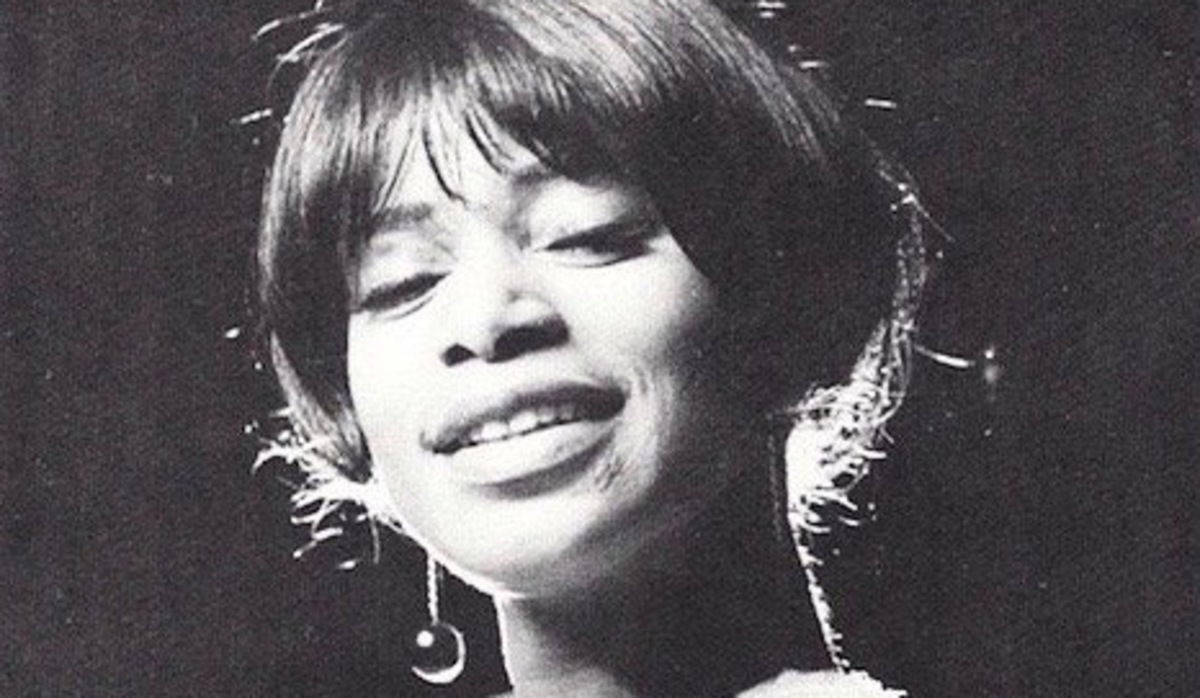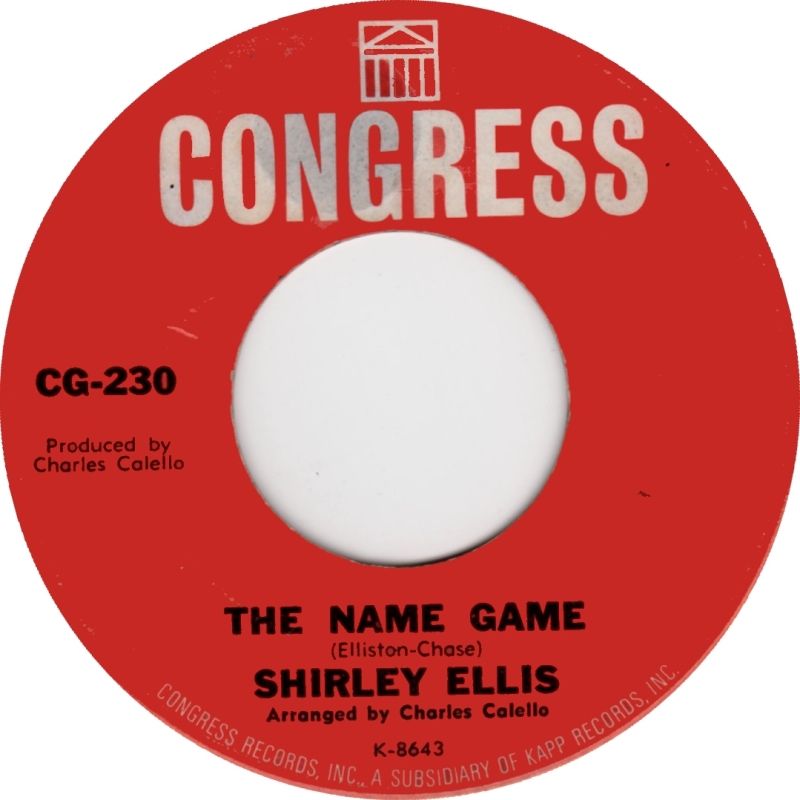SHIRLEY ELLIS

Shirley Ellis had three top ten hits, the biggest of which included the phrase, "Banana fana fo."
Shirley Marie O’Garra was born in The Bronx, New York, on January 19, 1929. Her father was a native of Montserrat, and her mother came from the Bahamas. Early on, Shirley won an Amateur Night contest at Harlem’s Apollo Theater and sang with a Rhythm & Blues group called the Metronomes. Her first copyrights were registered in June 1954. Both songs, “Pretty Wild” and “Lu-Lu,” were recorded by the Chords (“Sh-Boom,” 1954). In 1957, a group called the Heartbreakers recorded Shirley’s song, “One Two, I Love You.” They were managed by Shirley's husband, Alphonso Elliston.
In 1959, Shirley met Lincoln Chase, a prolific songwriter who was also a recording artist. He had been with labels like Decca, RCA, Dawn, Vik, Liberty, and Columbia. His composing credits included “Such a Night” (the Drifters, Elvis Presley) and “Jim Dandy” (LaVern Baker, Black Oak Arkansas). Chase became Shirley’s manager and songwriting partner; but contrary to some published accounts, they were never married. As Alphonso Elliston said in 1994, “I am Shirley Ellis’ husband. Lincoln Chase is not her husband and has never been her husband.”
She made her first recordings in 1961. “Love Can Make You Know” / “A Beautiful Love,” both written by Chase, came out on the Shell label. In September 1963, she and Chase struck a publishing deal with Al Gallico Music in New York City. Soon after, Dave Kapp signed the newly christened Shirley Ellis to his Congress label. It wasn’t long before her dance record, “The Nitty Gritty,” was top ten on both the R&B and pop charts. (The Dictionary of Slang and Unconventional English defines “The nitty gritty” as “The very core of something; the hard, unvarnished facts.”)
A year later, Chase wrote “The Name Game” based on a childhood game Ellis had played. An example of the game went, “Shirley Shirley bo birley / Banana fana fo firley / Fee fi fo mirley / Shirley!” Billboard gave it a glowing review: “’Nitty Gritty’ gal should crash all barriers with this one. Lyric gimmick is a grabber. Beat is a shaker!”
The magazine was right. “The Name Game” hit #4 on the R&B chart and did even better in the pop market, where it peaked at #3. For good measure, “The Name Game” also hit #2 in Canada. Her follow-up, “The Clapping Song,” gave Ellis her third and final top ten record. It also hit #10 in Canada and #6 in England.
On June 20, 1965, Ellis opened at NYC’s Basin Street East, back by Lincoln Chase on piano and Mitch Ryder’s Detroit Wheels. Billboard gushed, “The bouncy, vivacious Miss Ellis was extremely effective in her personable delivery. She is a dynamic personality who really communicates with her audience.”
In October 1966, Ellis signed with Columbia; but except for “Soul Time,” her hit-making days were over. In 1968, after an unproductive stint at Bell Records, Shirley Ellis retired from show business.
In 1969, “The Nitty Gritty” became a hit again when Gladys Knight & The Pips remade it. In 1983, Pia Zadora’s remake of “The Clapping Song” went to #36 on the Billboard Hot 100. “The Name Game” turned up in the Off-Broadway musical Beehive (1986), the Laura Branigan album Touch (1987), and in the movies My Girl (1991) and Radio Flyer (1992). Most recently, it was remade by Jessica Lange and the cast of American Horror Story in the identically-titled episode.
Lincoln Chase, 54, died on October 6, 1980. Shirley Ellis, 76, died on October 5, 2005. And Arnold Alphonso Elliston, 79, died on August 23, 2009. The Ellistons had one son.
Charted singles:
“The Nitty Gritty” (1963-64) R&B #4, Pop #8
“(That’s) What the Nitty Gritty Is” (1964) R&B #14, Pop #72
“Shy One” (1964) R&B #43, Pop #130
“The Name Game” (1964-65) R&B #4, Pop #3
“That Clapping Song (Clap Pat Clap Slap)” (1965) R&B #16, Pop #8
“Ever See a Diver Kiss His Wife While the Bubbles Bounce About Above the Water?” (1966) Pop #135
“Soul Time” (1967) R&B #31, Pop #67

